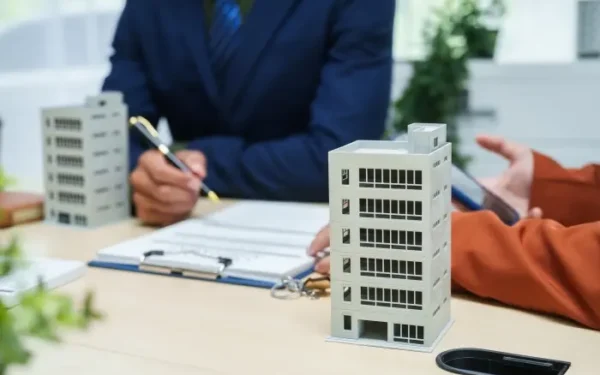Beginners Guide – The Business of Real Estate Investing

Real estate investing may not be everyone’s cup of tea, but some people who have already tried investing in real estate know that it can be highly profitable and lead to much better quality of life.
There are several keys to making significant profits in real estate investing deals. And when the deals are profitable, you will certainly be well on your way to success.
For real estate investing newbies, don’t be afraid of the challenges and pitfalls you may encounter along the way.
There is definitely a lot to learn, but in the long run after you have gained some experience, you’ll hopefully become a master at closing profitable real estate deals.
If you are seriously considering investing in real estate property, it means essentially that you will need:
- Investment capital or a legitimate means of attaining some without putting yourself in debt.
- A good knowledge of the real estate market and the neighborhood in which you are looking to buy property.
- Good management, people and negotiating skills
- The ability to do repair work or access to people who can do it for you.
- The name and number of a property inspector or engineer
- Five core skills are necessary for building a real estate investing business. These will be the key factors in creating a profitable real estate investment portfolio.
These are the five core skills of real estate investing:
- You must learn when and where to find the right kind of sellers.
- You must learn the art of being a master negotiator when it comes to closing your real estate investment deals.
- You must be able to quickly and accurately analyze each real estate investment deal so you’ll know exactly when to proceed and when to pull the plug.
- You must become an expert in all areas of real estate investing and understand such terms as lease options, cash sales, wrap mortgages, short sales and other terminology common in the real estate investing trade.
- You should totally understand the meaning and concept of investing in real estate, including all of the financial risks and benefits.
Now is a great time to consider investing in real estate. There are great potential rewards and the effort you put forth can yield enormous monetary returns on your investment.
Your confidence level will grow when you’ve gained some experience and closed on your first few real estate deals. But, don’t stop there…
Continue to learn about real estate investing and to develop your investment skills. In a short time you may find yourself managing a profitable and growing portfolio of investment properties.
Continue to follow your real estate investing “game plan” and always keep an eye out for the hidden investment opportunities.
The opportunities are definitely out there and with a little knowledge and desire can be yours for the taking. So, why not get started in what might be a new and exciting (and profitable) career today?
The price of real estate, like the price of anything else, is driven by supply and demand. The smaller the supply and the greater the demand, the higher prices should spiral. When the supply of housing can easily expand at a very fast rate, prices struggle to rise.
In the long term, the lack of land to build upon in an area can prove to be a problem. Too high real estate prices may cause employers and employees to relocate to less expensive areas.
If you’re looking to invest in real estate in an area with little land to build and sky-high prices, run the numbers to see if the deal makes economic sense.
In addition to land that you can build on, here are some other important real estate market indicators to give you a sense of the health, or lack thereof, of a particular market:
Building Permits
The trend in the number of building permits tells you how the supply of real estate properties will soon be changing. A long and sustained rise in permits over several years can indicate that the supply of new property will dampen future price appreciation.
Many areas experienced enormous increases in new building during the 1980s, right before prices peaked due to excess inventory.
Conversely, new building dried up in many areas in the late 1970s and early 1980s as builders and developers were strangled by onerous interest rates.
Vacancy Rates
As with building permits, low vacancy rates generally bode well for future real estate price appreciation.
If few rentals are vacant, that means more competition and demand for existing units. That’s a good sign for investors.
Conversely, high vacancy rates indicate an excess supply of real estate, which will put downward pressure on rental rates as many landlords compete to attract tenants.
Listings of Property for Sale and Number of Sales
Just as lots of new buildings, being built is bad for future real estate price increases; increasing numbers of listings of properties for sale is generally a problem in the making.
As property prices reach high levels, some investors decide it’s worth cashing in and investing elsewhere. When the market is flooded with listings, prospective buyers can be choosier, exerting downward pressure on prices.
At high prices (relative to the cost of renting), more prospective buyers elect to rent and the number of sales relative to listing drops.
A good sign is a decreasing and low level of listings of property for sale. This lack of listings indicates that the demand from buyers meets or exceeds the supply of property for sale from sellers.
When the cost of buying is relatively, low compared with the cost of renting, more renters elect and can afford to purchase, thus increasing the number of sales.
Rents
The trend in rental rates that renters are willing and able to pay over the years gives a good indication as to the demand for housing.
When the demand for housing keeps up with the supply of housing and the local economy continues to grow, rents generally increase. This increase is a positive sign for continued real estate price appreciation.


